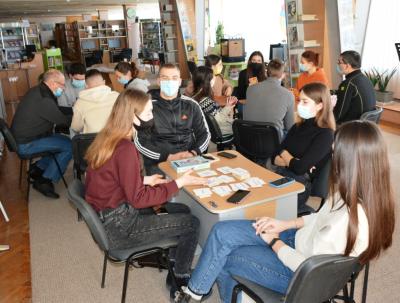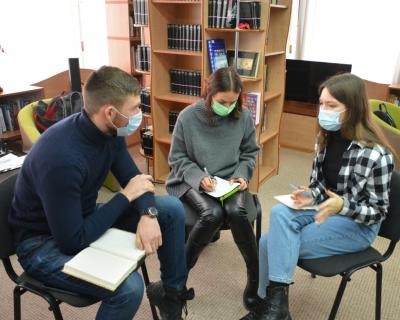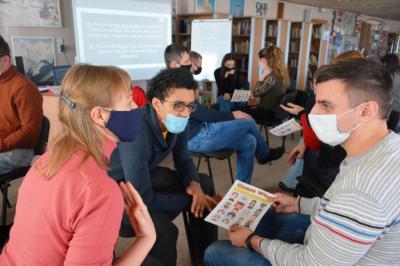Potemkin-Tavricheski G.A.

Potyomkin Grigori Alexandrovich
Grigori Alexandrovich Potyomkin-Tavricheski (Russian Григо́рий Алекса́ндрович Потёмкин, pronounced Patyómkin) (September 24 [ 1739) – October 16 [ 1791) was a Russian general-field marshal, statesman, and favorite of Catherine II the Great. He is primarily remembered for his efforts to colonize the sparsely populated wild steppes of Southern Ukraine, which passed to Russia under the Treaty of Kuchuk-Kainarji (1774). Among the towns founded by Potyomkin are Kherson, Mykolaiv (Mykolayiv), Sevastopol, and Yekaterinoslav (now Dnipropetrovsk). Son of Alexander Potyomkin and Daria Skuratowa.
A descendant of the Muscovite diplomat Pyotr Potyomkin, Grigory was born in the village of Chizhovo near Smolensk into the family of a minor army officer. After studying at the University of Moscow, he enlisted in the Chevalier Guard. He participated in the palace coup in 1762 that ousted Peter III and enthroned Catherine II. He was promoted to the second lieutenant of the Guards. Catherine needed reliable assistants and appreciated Potyomkin's energy and organizational abilities. The biographical anecdotes relating to him during the next few years, such as his participation in the assassination of the deposed emperor, are obscure and mostly apocryphal.
In 1774, their relationship took on a more intimate character. Potyomkin became a favorite of the tsarina; he received many awards and was given the highest posts. For the next 17 years, he was the most powerful man in Russia. Potyomkin found pleasure in ostentatious luxury and personal wealth. Like Catherine, he gave in to the temptation of absolute power; however, in many dealings, he was guided by the spirit of Enlightenment. He showed tolerance of religious differences and gave protection to national minorities. As commander-in-chief of the Russian army (nominally from 1784), he espoused a more humane type of discipline, demanding that officers take care of soldiers in a paternal way.
In 1776, at Catherine's request, Emperor Joseph II raised Potyomkin to the rank of a prince of the Holy Roman Empire. In 1775, he was superseded in the empress's graces by Zavadovsky, but the relationship between Catherine and her former lover continued to be most friendly, and his influence with her was never seriously disturbed by any of her subsequent favorites. Based on contemporary rumors it is sometimes suggested that Catherine and Potyomkin contracted a secret marriage at some point during this time, though this has been neither proven nor disproven. In any case, there is much evidence of his enormous and extraordinary influence over the Empress during the next ten years. His correspondence with her was uninterrupted, and the most important state documents passed through his hands.
Potyomkin achieved appreciable success in Russia's newly won southern provinces, in which he was an absolute ruler. He supported a stream of both Russian and foreign colonists, he founded some new cities and created the Black Sea Fleet. In 1783 he carried out the project of annexing Crimea to Russia, for which he received the victory title of His Serene Highness Knyaz Tavrichesky (Светлейший князь Таврический), or prince of Tauris, after an ancient name for Crimea. Four years later he organized Catherine's widely advertised ceremonial travel with her retinues to the southern provinces. The purpose of the trip was the intimidation of Russia's enemies, and it led to a war for which the country appeared poorly prepared (Russo-Turkish War, 1787-1792). As commander, Potyomkin was guided by a cautious strategy that was militarily justified but did not win him popularity. When he was commanding Russian troops in the 6-month long Siege of Ochakov, he faced the opposition of general Alexander Suvorov, who called for immediate action.
His colonizing system was exposed to very severe criticism, yet it is impossible not to admire the results of his stupendous activity. The arsenal of Kherson, begun in 1778, the harbor of Sevastopol and the new fleet of fifteen liners and twenty-five smaller vessels, were monuments of his genius. But there was exaggeration in all he attempted. He spared neither men, money, nor himself in attempting to carry out his gigantic scheme for the colonization of the south Ukrainian steppes; but he never calculated the cost, and more than three-quarters of the design had to be abandoned when but half-finished.
In 1790 he conducted the military operations on the Dniester and held his court at Iaşi with more than Asiatic pomp. In 1791 he returned to St. Petersburg where, along with his friend Bezborodko, he made vain efforts to overthrow the new favorite, Prince Platon Zubov, and in four months spent 850,000 rubles in banquets and entertainments at the Tauride Palace, a sum subsequently reimbursed to him from the treasury. Then the empress grew impatient and compelled him (1791) to return to Iaşi to conduct the peace negotiations as chief Russian plenipotentiary.
Near the end of his life, it became apparent he was suffering from a mental disorder, probably due to complications following an STD. This behavior included a series of violent assaults on the members of his staff and public declarations that he will conquer Poland, Turkey, and Egypt.[1] On October 5, while on his way to Nikolayev, he died in the open steppe, 40 miles from Iaşi, in consequence of eating a whole goose while in a high state of fever. Polish historian Jerzy Łojek notes that his death might have been a result of poison, as his continuing madness made him a liability to the Russian court., 1791
His death was lamented in Derzhavin's great ode Waterfall.
(from Wikipedia)
Catherine II had Potyomkin buried at the Catherine Cathedral of Kherson,
the city he founded.











